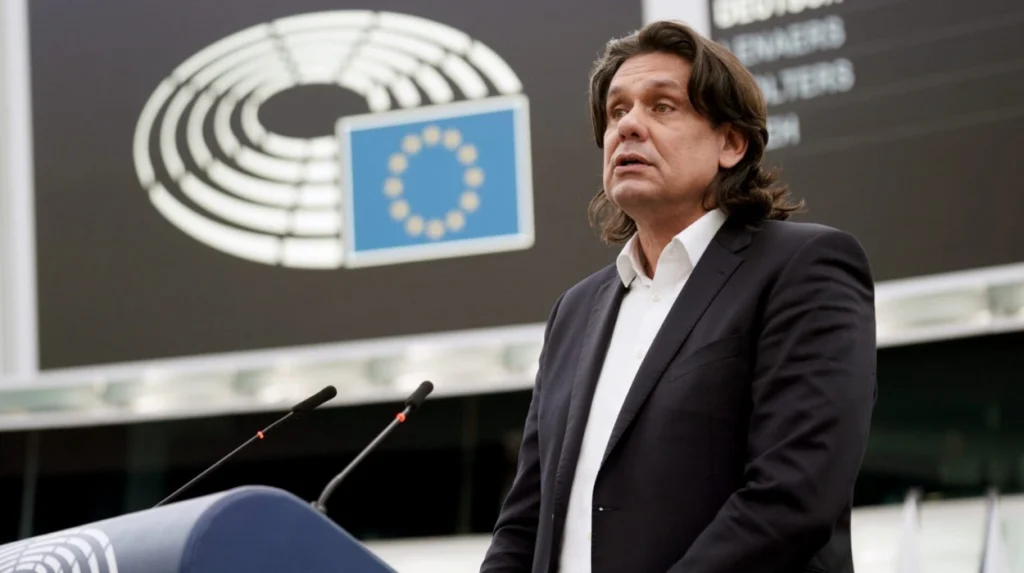Since July 2021, the European Union has frozen significant portions of funding allocated to Hungary, citing concerns over rule of law violations and democratic backsliding. The initial trigger was Hungary’s passage of the Child Protection Act, which the EU and Western mainstream media criticized as discriminatory against LGBT people. Subsequently, the EU extended the freeze to cohesion funds, holding back approximately €18 billion, equivalent to about 8% of Hungary’s annual GDP. This includes €10 billion that was scheduled for release in December 2023 but remains withheld due to ongoing disputes between Budapest and Brussels.
The EU’s conditionality mechanism demands Hungary meet specific reforms, especially regarding judicial independence and anti-corruption measures, before funds can be released. The Hungarian government has repeatedly expressed frustration, with Prime Minister Viktor Orbán threatening to veto the next Multiannual Financial Framework if the funds are not unfrozen.
Tamás Deutsch’s Accusations Against Budapest Mayor Gergely Karácsony
In a recent statement at the European Parliament in Strasbourg, Fidesz MEP Tamás Deutsch directly blamed Budapest Mayor Gergely Karácsony for the ongoing freeze of EU funds to Hungary. Deutsch accused Karácsony of being “infinitely cynical” and claimed the mayor has had a “direct impact” on the EU’s decision to withhold community funding.
Deutsch elaborated that Karácsony, despite not being a member of the European Parliament, was present in Strasbourg to promote Budapest Pride, an event that the national government had restricted. Deutsch characterized this as a political act aimed at undermining Hungary’s interests in Brussels. He stated,
“In his cynical way, Gergely Karácsony comes to Brussels and Strasbourg to personally ensure that Hungary does not receive these funds”.
Furthermore, Deutsch revealed that the Budapest municipality, under Karácsony’s leadership, operates a lobbying office in Brussels headed by Benedek Jávor, a former opposition politician. This office allegedly lobbies against Hungary’s national interests, particularly in the context of EU funding decisions. Deutsch condemned this as a betrayal, urging Karácsony and his allies to stop “scheming against their own country” and to admit that the accusations leading to the fund freeze are unfounded. He concluded,
“Then Hungary will immediately have access to these funds, and the Budapest developments that would be essential for the city can be made”.
Karácsony’s Position and Response
While Deutsch’s accusations have been forceful, Mayor Karácsony has taken a different stance. At a press conference in the European Parliament, Karácsony argued for mechanisms that would allow local governments, businesses, and civil organizations to access EU funds directly, bypassing the national government. He suggested that
“the government should be punished rather than bodies at the local level”,
implying that the national government’s policies and actions are responsible for the funding impasse rather than local authorities.
This position highlights a fundamental disagreement between the ruling Fidesz party and opposition figures like Karácsony over responsibility for Hungary’s strained relations with the EU and the consequent financial repercussions.
The Broader Political Context
The dispute over EU funds is part of a larger political struggle between Hungary’s ruling Fidesz party, led by Viktor Orbán, and the European Union. The EU’s concerns include corruption, erosion of judicial independence, democratic backsliding, and human rights issues. Orbán’s government has also faced criticism for its stance on migration and its opposition to military aid for Ukraine amid the ongoing conflict with Russia.
The Financial Times reported that Hungary risks permanently losing over €1 billion in EU funds starting January 2025 due to the ongoing stalemate. This financial loss could have significant political consequences for Orbán, especially with the 2026 parliamentary elections approaching.
The Hungarian government has sought to frame the EU’s decision as a political attack and has launched damage control efforts. Justice Minister Judit Varga and other government officials have emphasized progress in negotiations and expressed optimism about eventually regaining access to the funds. Pro-government media have echoed this narrative, portraying the government as successfully defending national interests in Brussels.
Impact on Budapest and Local Developments
The frozen EU funds are crucial for local development projects in Budapest and across Hungary. Tamás Deutsch emphasized that the release of funds would enable “really important developments” in the capital city, implying that the current freeze hampers infrastructure, environmental, and social projects that require EU financial support.
Budapest Mayor Karácsony’s opposition to the national government’s policies and his active lobbying in Brussels reflect the deep political divisions within Hungary. These divisions complicate the country’s ability to present a united front in negotiations with the EU and may prolong the funding freeze.
The ongoing freeze of EU funds to Hungary remains a contentious issue, deeply intertwined with political rivalries and differing visions for the country’s future. Fidesz MEP Tamás Deutsch’s public attribution of responsibility to Budapest Mayor Gergely Karácsony underscores the internal conflicts that exacerbate Hungary’s disputes with the European Union. Until these political and legal disagreements are resolved, Hungary’s access to billions of euros in EU funding will remain uncertain, with significant consequences for both national and local development projects.







